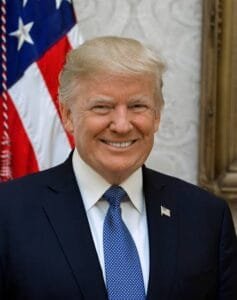The Remarkable Life, Tumultuous Times and Famous Acquaintances of Renowned Historian and Author Ross Terrell

By Robert Golomb
The famed China historian, award-winning author and essayist, frequent broadcast media commentator and correspondent and Harvard PhD and professor, Ross Terrill, 82, received his first taste of living history when he was still a very young boy in his native Australia during the Second World War (1941-1945). “During World War 2, America sent GI’s to Australia to defend her from what was feared to be a possible Japanese attack…. I was a toddler then, but I can still recall the soldiers tossing me candies wrapped in foil of brilliant colors,” Terrill told me during a recent telephone interview.

The attack never occurred. And, of course, America and her British, Russian and Canadian major allies defeated Germany by April 1945, and America, by then, mostly fighting on her own, overcame Japan 5 months, more than 100,000 American servicemen killed in action and 2 atomic bombs later.
The post war period in which he grew from childhood into young adulthood was a productive, though an uneven time, for Terrill. Between 1956-1957, he spent his freshmen year at Wesley College, but by the fall term, rather than going on to his sophomore year at the school, Terrill enlisted in the Australian Army where he served until the end of 1958.
“Putting my studies aside for a short period of time was no big matter to me…. I felt is was my honor and duty to serve my nation,” stated Terrill.
Upon his discharge from the army, Terrill, transferring from Wesley, enrolled in the University of Melbourne. And by his graduating senior year in 1961, Terrill applied his academic studies to a grave moral crisis facing his nation, as he became an outspoken political activist for the civil rights of the Chinese minority, who had been the victims of racism in Australia since their ancestors began their immigration to the nation during the 1851 gold rush.
“To be anti- Chinese was as Australian as the eucalyptus tree. Rumors ran that opium was fed to Australian children {by the Chinese}. Were the Chinese chefs not cooking lovely Australian cats for their dumpling,”? said Terrill sardonically.
To fight that bigotry, Terrill joined an anti-racism student group. He also wrote a letter published in a national newspaper, denouncing this anti-Chinese prejudice and expressing his hope that this bigotry was on the decline. As Terrell recalled, “My letter began {with the sentence}, ‘Finally the attitude of superiority towards Chinese and other non-whites is losing ground in Australia.”’
Shortly after the letter was published, Terrill was faced with the harsh reality of hatred that his missive had spawned. “I got a surprise at the front gate of my family’s house in Melbourne,” Terrell recollected. “Fetching the bottles of milk, as I did each morning, I found large white-paint letters with the arrow pointing from the words in our gateway. ‘TRAITOR’ it said. ‘ROSS TERRILL IS A NATIONAL PERIL,’’’
Terrill proudly told me that he did not give in to that threat and continued fighting on behalf of the Chinese immigrants for many years to come. And that crucial anecdote was just one of many Terrill related to me at my request during our 60- minute interview. There were many other incredible stories to follow- all of which, including the latter, I had already learned about from having recently read his latest and 11th book, Australian Bush to Tiananmen Square.
But as I have learned from past interviews with other celebrated authors, you can gain a very special insight when you hear a great author talk about the great words he has written in his tome, and in the case of Terrill here, when he also shares his own very special auto-biography along the way.
“You want to know what I consider the highlights of Australian Bush to Tiananmen Square, let me begin by going back to my first visit to China in 1964,” said Terrill.
“I had taken time off from my graduate studies [at the University of Melbourne},” Terrill explained, “to have a first- hand understanding of the government, its view of other countries and also to learn about the people of that communist nation.’’
It was at a photo exhibition held in the city of Beijing, the nation’s capital, where, Terrill explained, he gained his first-hand understanding of how China’s communist regime viewed the most important of the “other countries,” America.
“There was a photo exhibit called ‘Four Wicked Men,’ stated Terrill. “And the either taken out of context and, or, doctored photos showed {former presidents} Truman with a clenched fist, Eisenhower looking moronic, Kennedy {appearing} old and bewildered and {then current President} Johnson leering into microphones that resembled guns.”
When he told a China government official assigned to monitor the exhibit that he objected to the demeaning portrayal of these 4 American presidents, Terrill recalled that the official retorted, ‘These men are enemies of China. Consider their deeds. Their deeds are a caption of the pictures.”’
The next event (probably better described as an edifying anecdote) contained in the book which Terrill referred to during the interview occurred in war-torn South Vietnam in 1965, the second full year of America’s war against the North Vietnamese Communist regime.
“During a respite from my graduate studies, I visited Saigon { the capital city of South Vietnam}. There I met a South Vietnamese official named Tien, with whom I had discussion which I have never forgotten,” Terrill stated.
“Tien, who had an aunt and uncle in Hanoi {the capital city of North Vietnam}, told me,” Terrill elaborated, ‘If the allied forces had lost World War 2 to the fascists, it would be the fascists not the Communists, who would be ruling in China and East Europe.
“That intriguing speculation,” Terrill added, “led me to ask him a question which produced a very telling answer for a citizen of a country fighting a civil-war against the communists. When I asked Tien, ‘which was worse, fascism or communism,’? “he replied passionately in broken English, ‘both are worse. {But} if I had to choose I suppose I would choose fascism- it’s a dictatorship by an upper class; communism is dictatorship by lower class.”’
We last discussed Terrill’s visit back to China in July, 1971- at the time his approximately 12th visit to that nation, which he has visited about 80 times since. “I was a guest lecturer in government at Harvard back then, but I was able to find time to take a journey to Changsha, home city of {Chairman} Mao,” noted Terrell.
Explaining that his visit coincided with President Nixon’s historic diplomatic breakthrough with Chairman Mao and his Chinese Communist Party Government, Terrill stated, “I received a cable from the Washington Post, requesting articles on Nixon’s break through… My article, cabled from Changsha, appeared on the Washington’s Post’s front page on July 22nd.
“One of the points I made in the article,” Terrill elaborated, “was that the Chinese preferred to deal with Republicans rather than Democrats, because it was the Democrats (Truman and Acheson) who backed Chiang Kai-shek {the then leader of Nationalist China} to the end and who fought China in Korea. In addition, I wrote in the piece that according to Chinese officials I had met with, the Democrats were too ready for ‘collusion with Moscow.”’
A week later, after a long plane ride from South Vietnam to Boston, Terrill, who was to become an American citizen in 1979, was back in his apartment located near Harvard. However, whatever deserved rest he might have been enjoying was interrupted by a phone call he received from a high-level American government official who called to praise his Washington Post article.
“I picked up the phone and heard the voice of Henry Kissinger {then the U.S. National Security Advisor} himself on the other line,” Terrill recollected. “He told me that he liked what I had written in the piece… We spoke for a while and before he got off, I told Henry, ‘Beijing takes the change from President Johnson’s expansionism to Nixon’s prudence very seriously.”’
With that, our sixty-minute talk came to an end. However, there were so many additional historical events and anecdotes I had read in Australian Bush to Tiananmen Square, about which, had time permitted, I would have asked him to elaborate upon.
Ranging from his conversations in 1971 with Chinese Communist Premier Zhou Enlai about China’s history, economy, culture and political system; to his 1982 very candid talk with journalist Tang Na concerning his then former wife Jiang Qing, the future Madame Mao; to his 1988-1992 discussions with then President George H.W. Bush focusing upon America’s China policy; and, perhaps most importantly, to his first-hand account of the savagery that he witnessed in Tiananmen Square throughout the spring and in the early summer of 1989, I would have welcomed Terrill offering still further commentary about those, as well as the many other historical events he brilliantly chronicled in his must read memoir.
Robert Golomb is a nationally and internationally published columnist. Mail him at MrBob347@aol and follow him on Twitter@ Robert Golomb.













